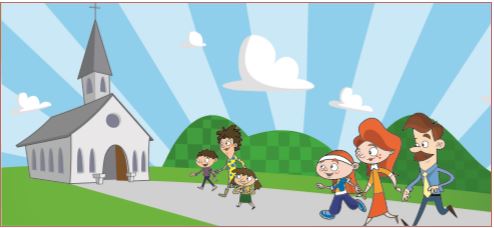Do This in Memory
|
18. THE CREED
After the homily the priest invites us to stand and profess our faith. We do this by saying the Creed. There are two Creeds that can be said at Mass: the Apostles’ Creed and the Nicene Creed. The Creed tells us simply what we believe as members of the Church. We stand to show that we are proud to be followers and friends of Jesus. PRAYER OF THE FAITHFUL During this time we pray for all our needs, particularly for the Church, the leaders of our country, those who are sick and in need of God’s healing and those who have died. The Prayer of the Faithful is normally spoken by the Minister of the Word on our behalf. At the end of each prayer there is a moment of silence and then the Minister of the Word says: ‘Lord hear us’ or ‘We pray to the Lord’, and we answer: ‘Lord graciously hear us’ or ‘Lord hear our prayer.’ 17. THE HOMILY
We all sit down to listen to what the priest/deacon has to say about the readings we have heard and how we might be able to put this into practice in our everyday lives. We call this the homily. The priest/deacon normally stands at the ambo to give the homily. At the end of the homily the priest may sit down and we can spend a few minutes in quiet prayer. This time lets us think about what the priest has said and ask God to help us to live as he would want us to 16. SEVEN WAYS WE KNOW THE GOSPEL IS IMPORTANT
|
Location |
|











